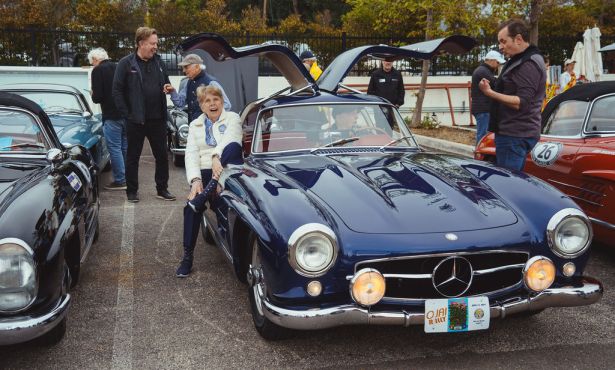Shedding Light for Free

A Goleta nonprofit is shining light on a huge problem for 1.5 billion people worldwide. Unite to Light produces completely solar-powered lights that are donated to people in over 64 countries, where most still rely solely on sources such as kerosene for light. The company was formed in 2010 by John Bowers, director for the Institute for Energy Efficiency at the University of California Santa Barbara, and Claude Dorais, a local attorney.
The idea for the company came from Dr. Osei Darkwa, who visited Santa Barbara from Ghana. He told Bowers that something needed to be done to bring light to children in Africa to allow them to read and that the kerosene that people were relying on was causing serious health problems and financial hardship. The kerosene that provides light for so many people around the world is not only expensive but also produces levels of soot and smoke comparable to smoking two packs of cigarettes a day.
“We didn’t design this company because it was something we wanted to do,” said company president Dawn O’Bar, “but because there was a need. These kids were using candles, kerosene, or nothing at all.” O’Bar got involved with the company by asking what she could do to help after she first heard of it. She started off by writing thank-you letters to donors and within six months became the company’s first paid employee. She became its president in 2012.
The nonprofit started out with plans to make student reading lamps that were inexpensive, lightweight, solar-powered, and very reliable. Bowers collaborated with his students at the Institute for Energy Efficiency to create the technology and design for the LED light at UCSB. So far they have distributed over 60,000 of these reading lamps around the world. O’Bar said that the goal of the company is to send out one million lights.
Unite to Light’s latest venture is a solar-powered light-and-USB-charger combo unit, designed to charge cell phones and Kindles. The need for these chargers is just as important, says O’Bar. “After Hurricane Katrina, people didn’t have electricity for seven to 10 days. Of the seven billion people on the planet, six billion have cell phones. People in Africa have to walk miles just to charge their phones. We can provide people with mobility.”
After developing the charger/light unit, Unite to Light partnered up with an organization in San Francisco called World Reader. Together the two companies are shipping 30 chargers and 30 Kindles, each loaded with 100 books, to Kenya, with hopes to send many more.
Unite to Light has 30-40 volunteers who run the company completely on their own time, with many students involved with the technical side of things. O’Bar says they are always looking for more volunteers in different areas of the company. Her goal is “to get the word out more. Locally, people are finding out about us, but we want to make it bigger than just a local thing. We want to get out those one million lights. This makes a huge difference in people’s lives, for students especially. We want these students to thrive.” The products made by Unite to Light can be purchased and donations can be made to the nonprofit online at unite-to-light.org.



